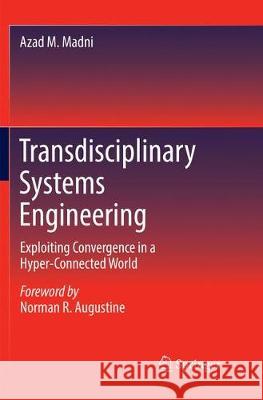Transdisciplinary Systems Engineering: Exploiting Convergence in a Hyper-Connected World » książka
topmenu
Transdisciplinary Systems Engineering: Exploiting Convergence in a Hyper-Connected World
ISBN-13: 9783319872506 / Angielski / Miękka / 2018 / 212 str.
Kategorie:
Kategorie BISAC:
Wydawca:
Springer
Język:
Angielski
ISBN-13:
9783319872506
Rok wydania:
2018
Wydanie:
Softcover Repri
Ilość stron:
212
Oprawa:
Miękka
Wolumenów:
01











